
THE YEAR 2022 was a year of transition and transformation.
It saw transition in the change in leadership in the Philippines, the gradual return of practices that were disrupted by the pandemic, the takeover of the frequencies of a shuttered television network and the miserable debut of UST’s revamped men’s basketball team.
The year also witnessed transformations caused by an invasion-triggered war, a number of natural disasters, acquisition of a social media company, and soaring commodity prices, which forced several households to further tighten their belts.
There were also triumphs like the Philippines’ securing of a place in a prestigious football tournament and the magical reunion concert of arguably the most influential band in the country; tragedies like the passing of prominent figures in politics, journalism, arts and entertainment; and thorny talks like those involving the mandatory military training for students and registration of cellphone numbers and the controversial proposal to establish a sovereign wealth fund.
The Flame highlights 22 of the biggest news stories in 2022 that left an impact on the Artlet community, the University, the nation, and the world.
1. Marcoses’ return to power

After a grueling and divisive election campaign, Ferdinand “Bongbong” Marcos, Jr., the son and namesake of the late dictator, won the presidency by landslide, signaling the return of his once-exiled family to power.
Marcos Jr. got 31 million votes, making him the first majority president since 1986. His runningmate, former Davao City mayor Sara Duterte-Carpio also dominated the race for vice president with more than 32 million votes.
Various groups claimed that the victory of Marcos would pave the way to the whitewashing of human rights violations and corruption issues tied to his father’s administration. The President’s sister, Sen. Imee Marcos, has denied that her family is seeking to revise history.
A total of 55,549,791 Filipinos or 83% of the total registered voters cast their votes in this year’s polls, the highest voter turnout since the automated elections began.
2. Record inflation

The year 2022 was a painful year for consumers as the Philippines’ inflation rose to 8.1% in December, the highest in the last 14 years. The record-high inflation was primarily caused by the higher costs of food, alcoholic and non-alcoholic beverages, restaurants and accommodation services, fuel and utilities like water, electricity and gas.
The year also saw the skyrocketing of crude oil and petroleum prices to almost a hundred pesos per liter. Experts have attributed the soaring prices to the insufficient supply for oil products, which was partly caused by the war between Ukraine and Russia.
Various groups asked the government for a fare hike in public utility vehicles, saying transport workers could no longer cope with the higher cost of living. To cushion the impact of the high inflation, the government provided PUV drivers a P6,500 fuel subsidy last year and implemented a minimum fare hike in all PUVs, ranging from P12 to P55 depending on the transportation mode.
3. Lifting of facemask mandate and the return of onsite classes
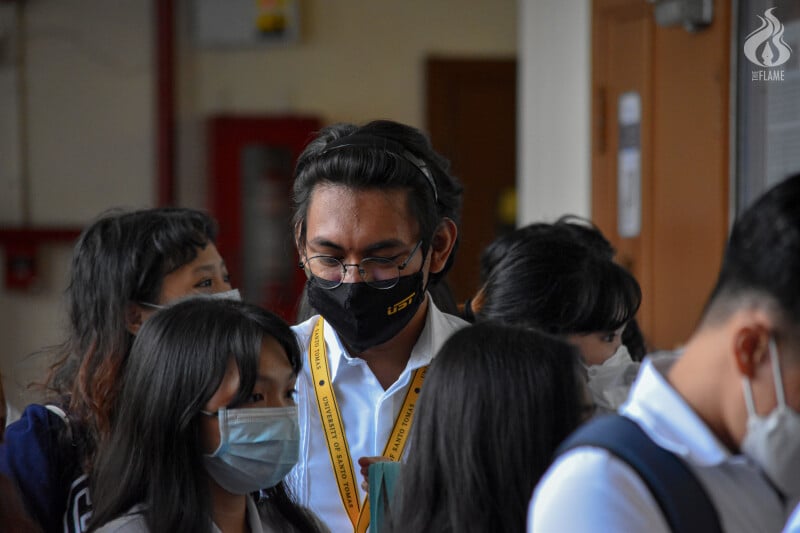
While COVID-19 still poses a threat to public health, governments around the world continued to relax pandemic restrictions to reopen the economy.
President Ferdinand “Bongbong” Marcos, Jr. has lifted the face mask requirement as part of the reopening of the economy. Filipinos are no longer required to wear facemasks in indoor and outdoor spaces.
However, face masks should still be worn at healthcare facilities, medical transport vehicles, and public transportation. The government is also encouraging the elderly, individuals with medical conditions, pregnant women, unvaccinated individuals, and symptomatic patients to continue masking up. Public schools also resumed onsite classes last November after two years of full distance learning.
The Commission on Higher Education has also required all colleges and universities to hold half of their classes onsite. It has also barred the holding of full online classes without its approval. In an interview with The Flame last month, UST Vice-Rector for Academic Affairs Prof. Cheryl Peralta said the onsite to online class ratio for the incoming semester will be determined by each college’s respective academic units and staff
4. UST traditions are back

Some Thomasians felt fully belonged to the UST community after experiencing cherished traditions and activities that resumed after the easing of pandemic restrictions.
The baccalaureate mass and graduation rites of the senior students were held in-person last June. Freshmen students also experienced the ROARientation, and the traditional welcome walk onsite.
The University has also brought back the University of Santo Tomas Entrance Test or USTET. Aspiring Thomasians took the admission test in campus last Oct. 23. The University implemented the virtual admission rating system in 2020 and 2021, wherein applicants were evaluated through their academic performance.
The much-anticipated Paskuhan festivities were once again conducted onsite but were only open to Thomasians. The annual Agape and opening of lights, which mark the start of the Paskuhan season, was held last Dec. 2 while the Paskuhan concert, which was attended by more than 51,000 Thomasians, took place last Dec. 19.
5. Musk buys Twitter

After months of chaotic and headline-grabbing negotiations, billionaire Elon Musk closed a deal to buy social media platform Twitter late last year. Musk, CEO of Tesla and SpaceX and one of the world’s richest men, acquired Twitter for $44 billion on Oct. 27.
After the purchase, Musk fired some of the company’s executives, including its CEO Parag Agrawal, chief financial officer Ned Segal, policy head Vijaya Gadde, and general counsel Sean Edgett. Half of Twitter’s workforce, reportedly about 7,500 full-time employees, were also laid off.
Musk, who described himself as a “free speech absolutist” also introduced controversial policies, including charging $8 a month for a blue check, which is given to verified accounts and was meant to prevent impersonations. The move led to the proliferation of hoax accounts, forcing Twitter to update its policy.
Users who want a blue mark will have to pay $8 a month – $11 a month if one buys it from the iOS App Store – but will be required to register a phone number. Subscribers will also be allowed to edit tweets and upload up to 60 minutes long videos
Gold checks and gray checks are also being offered for companies and government entities, respectively.
6. Passing of prominent local personalities
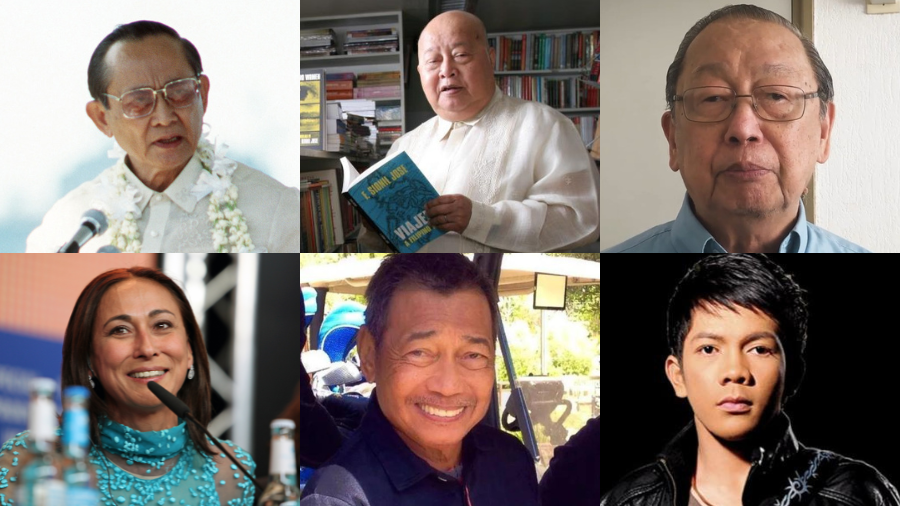
The Philippines lost a number of prominent personalities last year.
Former President Fidel V. Ramos died on July 31 at the age of 94.
Ramos, the 12th president of the Philippines, was known for implementing economic reforms, forging a peace agreement with the secessionist Moro National Liberation Front, and putting an end to a power crisis.
National Artist for Literature Francisco Sionil Jose also died early last year at the ripe age of 97. Jose, one of the most productive writers in the country, passed away on Jan. 6, 2022, a day before his scheduled angioplasty. He wrote over 35 books and was known for his works depicting the Filipinos’ struggles against social injustice.
Activist and Communist Party of the Philippines founder Jose Maria Sison passed on last month at the age of 83 in the Netherlands,
The year 2022 also saw the passing of some entertainment celebrities.
Award-winning actress Cherie Gil, who made a mark in the television and film industry for her remarkable villain roles,’ died of endometrial cancer on Aug. 5 at the age of 59. Dubbed as “La Primera Contravida,” Gil starred in some notable films like Bituing Walang Ningning, Oro Plata Mata, and Manila by Night.
APO Hiking Society’s lead vocalist Danny Javier died on Oct. 31 due to health complications at the age of 75. Javier composed a number of Filipino hits, including “Blue Jeans,” “Di Na Natuto,” and “Awit ng Barkada.”
Singer and first-ever Pilipinas Got Talent champion Jovit Baldivino died last Dec. 9 after being comatose for five days for alleged brain aneurysm.
7. Devastating disasters
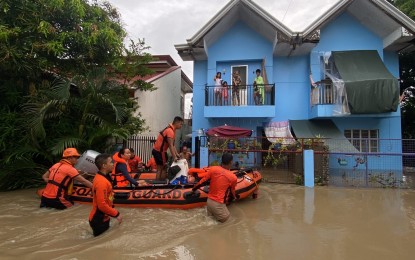
The resilience of Filipinos was again put to test by major calamities.
A 7.0 magnitude earthquake hit the province of Abra at 8:43 a.m. last July 27, killing 11 people and injuring 609 others. Authorities also reported 36,780 damaged houses, 2,278 damaged infrastructure and more than P74 million in agricultural losses due to the disaster.
Severe tropical storm “Paeng” hit the Philippines from Oct. 29 to Oct. 31, the 16th tropical cyclone to hit the country last year. “Paeng” left 160 people dead, 108 others injured and P11.7 billion worth of agriculture and infrastructure damage, according to the National Disaster Risk Reduction and Management Council.
“Paeng” made landfalls in Catanduanes, Camarines Sur, Quezon, Marinduque, Batangas, and Bulacan, affecting over 5.4 million individuals and 146,000 workers in the agri-fishery sector.
8. Back-to-back bad seasons for the Tigers

To say that 2022 wasn’t the UST Growling Tigers’ year is a gross understatement.
The once mighty men’s basketball team lost a number of key players during the height of the pandemic, and underwent changes in the coaching staff in between seasons.
In UAAP season 84, which was held early last year, the Growling Tigers were second to the worst team in the league with a 3-12 win-loss record. The team also suffered the worst defeat in the league since 2003 after being demolished by the Ateneo Blue Eagles last April, 101-51.
But the miseries of the Tigers did not end there. Bal David’s debut as head coach saw the team winning just one of its 14 games during season 85, the worst record in the league. Despite the Tigers’ abysmal performance, David said there are no plans to undertake a major revamp in the team.
9. Eraserheads reunite in one magical night

Nostalgia filled the SMDC Festival Grounds during the four-hour reunion concert of iconic rock band Eraserheads last Dec. 22.
About 75,000 people attended the much-awaited reunion of the band, which defined the 90s with their hits like “Ligaya,” “Toyang,” “Minsan,” “Alapaap,” “With a Smile,” “Spoliarium,” “Magasin” and “Overdrive.”
Although the event was titled “Ang Huling El Bimbo,” concert producer and WEU President Francis Lumen said a possible world tour in 2023 is in the works.
10. Remarkable TV shows

The year 2022 marked the end of an era for local TV viewers as they saw the finale of long-running ABS-CBN shows “FPJ’s Ang Probinsyano” and “Maalaala mo Kaya.”
“FPJ’s Ang Probinsyano,” which starred Coco Martin and was loosely based on the 1996 film of action king Fernando Poe Jr., lasted for seven years. “Maalaala mo Kaya,” a drama anthology hosted by Charo Santos-Concio, aired for 31 years.
A number of TV offerings also created buzz this year including ABS-CBN’s “Darna,” “2 Good 2 Be True,” and “Broken Marriage Vow” and GMA’s “Maria Clara at Ibarra” and “Running Man PH.”
11. Russia attacks Ukraine
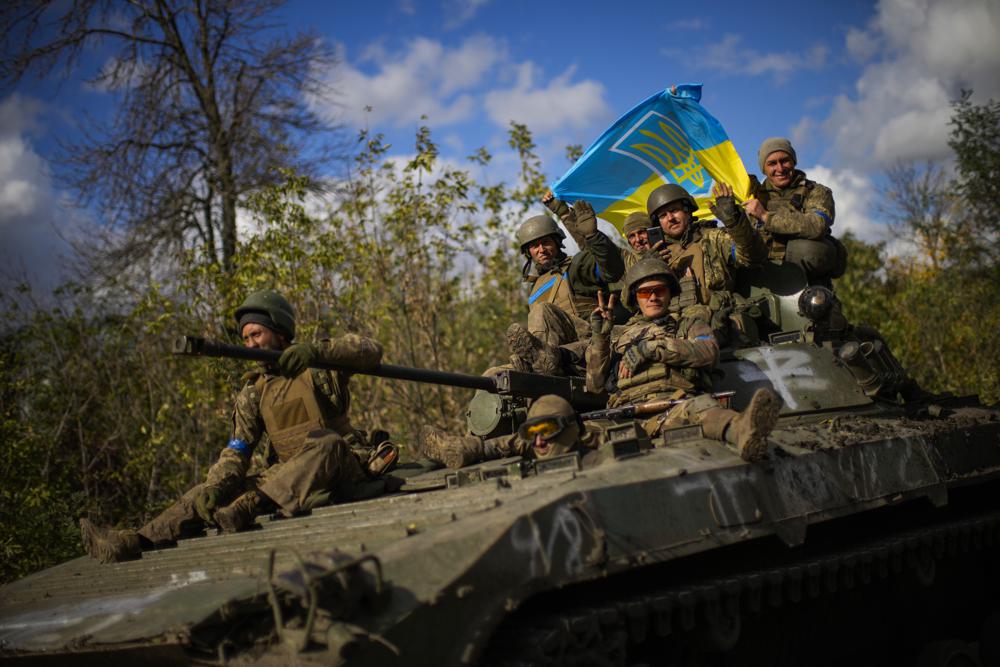
The feud between Russia and Ukraine erupted into a war this year, causing a spike in global commodity prices and creating political and economic uncertainties.
On Feb. 24, Russian President Vladimir Putin carried out a full-scale invasion of Ukraine, a move that drew global condemnation and triggered economic sanctions against Moscow.
It was Europe’s largest mobilization of armed forces since World War II. More than 200,000 soldiers and 40,000 civilians have died in the conflict, according to the US military.
12. Sim cards now required to be registered

President Ferdinand Marcos Jr. signed the SIM Card Registration Act into a law last Oct. 10 in a move that the government said would curb the proliferation of spam and scam text messages.
The law, the first to be signed under Marcos Jr.’s presidency, requires postpaid and prepaid subscribers to register their SIM cards. Activists are worried that the law may violate the privacy of mobile phone users.
The registration of SIM cards started last Dec. 27. However, many users faced difficulties because of server issues on telcos’ registration portals that were caused by high website traffic.
13. Another journalist killed

Veteran broadcaster Percival “Percy Lapid” Mabasa was shot dead by an unknown gunman inside his vehicle on Oct. 3 in Las Pinas city. Known for his scathing commentaries and his exposes, Mabasa hosted a radio show called “Lapid Fire,” where he criticized a number of public figures.
On Oct. 18, self-confessed gunman Joel Escorial faced the media and claimed that Lapid’s killing was ordered by an official of the New Bilibid Prison. In November, the National Bureau of Investigation and the Philippine National Police filed murder complaints against Bureau of Corrections chief Gerald Bantag and several other persons over the death of Lapid and Jun Villamor, the alleged middleman in the broadcaster’s slay who died while in detention. Bantag has denied involvement in the assassination of Lapid.
14. Mandatory military training

Voting 276-4, the House of Representatives approved on final reading the National Citizens Service Training Program (NCSTP) Act last Dec. 15.
The measure, which has been certified as urgent by President Ferdinand Marcos Jr., requires college students to undergo civic and military training supposedly to instill nationalism and discipline among the youth.
However, critics claimed that the NCSTP is only a rebrand of the then mandatory Reserved Officers’ Training Corps (ROTC).
The mandatory ROTC was abolished in 2001 following an outrage over the murder of
UST student Mark Welson Chua, who had exposed the irregularities in his unit.
15. UST fails to secure THE ranking, improves in QS
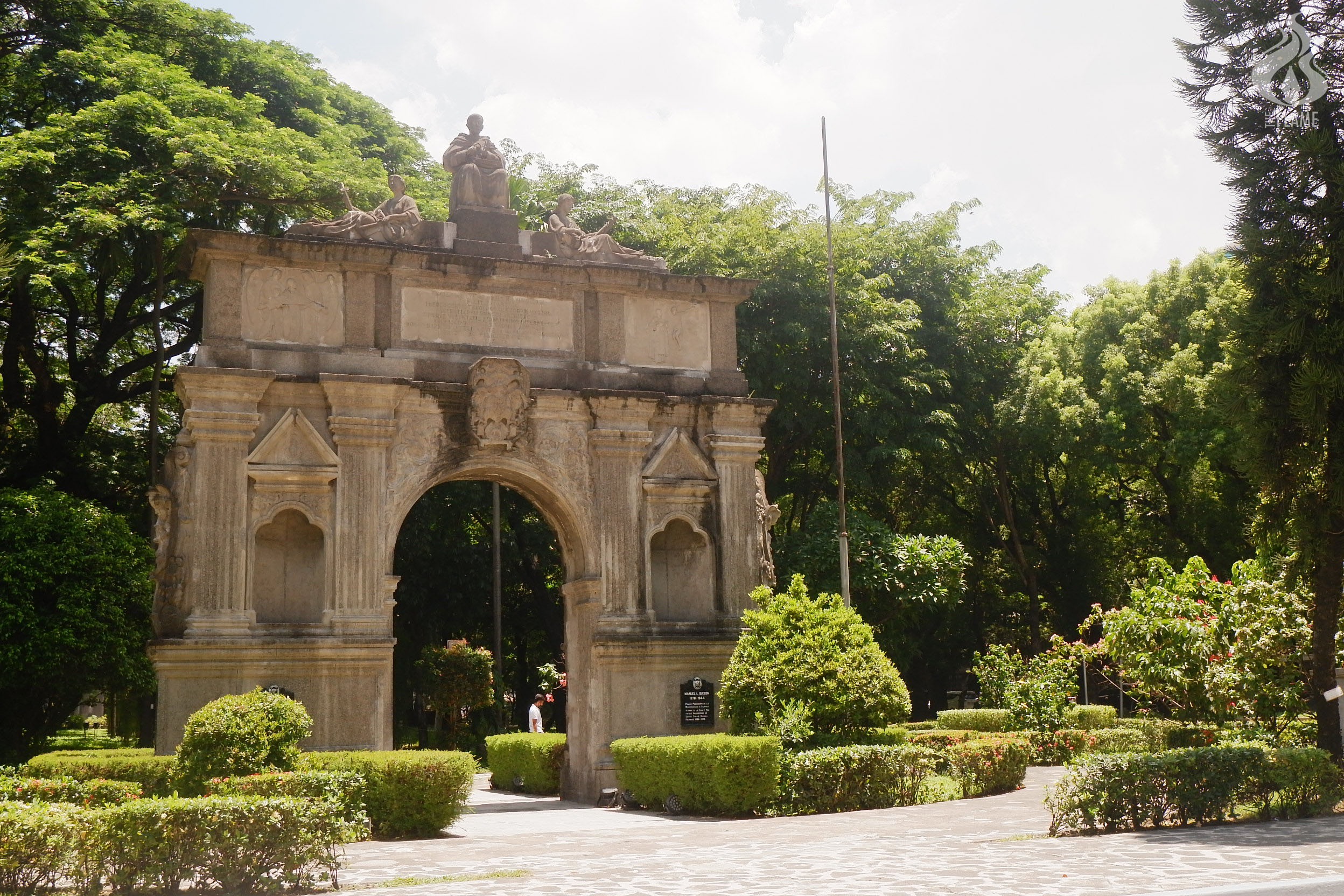
Some Philippine universities made it to the list of reputable publications on university rankings.
Ateneo de Manila University (351-400), University of the Philippines (801-1000), De La Salle University (1201-1500), and Mapúa University (1501+) secured rankings in the 2023 Times Higher Education (THE).
UST did not get a ranking but was granted a “reporter” status along with five other universities namely Cebu Technological University, University of Science and Technology of Southern Philippines, Mindanao State University, Tarlac Agricultural University, and Visayas State University.
In an email interview, THE told The Flame that UST had failed to meet the research publication threshold it set.
UST fared better in the 2023 Quacquarelli Symonds (QS) Asia University Ranking as it ranked175th in Asia, two spots higher than its previous ranking. It was the only Philippine university among 16 higher education institutions with an improved ranking.
16. PH’s first-ever FIFA World Cup appearance

The Philippine women’s national football team made history as it qualified for the FIFA World Cup, a first for the country in both men and women divisions.
The team, whose moniker is “Filipinas,” achieved the feat after trouncing Chinese Taipei in the 2022 Asian Football Confederation (AFC) Women’s Asian Cup semi-finals.
The Philippines had a chance to enter the 1950 World Cup for men but decided to withdraw from the tournament.
17. Maharlika wealth fund bill passed despite concerns

After being certified as urgent by President Ferdinand Marcos Jr., the controversial bill creating the Maharlika Investment Fund (MIF) was approved by the House of Representatives with a whopping support from 90 percent of its members, who are also named as its co-authors,
The MIF is envisioned to be a source of funding for key infrastructure projects and other government programs. Under the bill, the initial investments will come from the Bangko Sentral ng Pilipinas, Philippine Amusement and Gaming Corporation, Land Bank of the Philippines and Development Bank of the Philippines.
Lawmakers refined the bill after a plan to include the Social Security System and Government Service Insurance System as sources of capital raised suspicions.
A number of business groups and economists have expressed concern over the bill, saying there is at present no gap nor missing institution in the economy that needs to be solved by the creation of a sovereign wealth fund.
18. From ABS to AMBS

Channel 2 now belongs to Villar’s ALL TV.
The Philippines’ richest person, former senator Manuel Villar, officially made strides into becoming one of the country’s media tycoons as his company Advanced Media Broadcasting System (AMBS) launched its free-to-air television network ALL TV.
It took over the Channel, which belonged to shuttered network ABS-CBN, for almost 37 years.
Voting 70-11, a House panel rejected a bill seeking to grant a fresh 25-year franchise to ABS-CBN in 2020, a move widely regarded as an attack on press freedom.
In January, the National Telecommunications Commission announced that it has granted AMBS a provisional authority to temporarily operate Channel 2.
19. ICC continues probe into drug killings
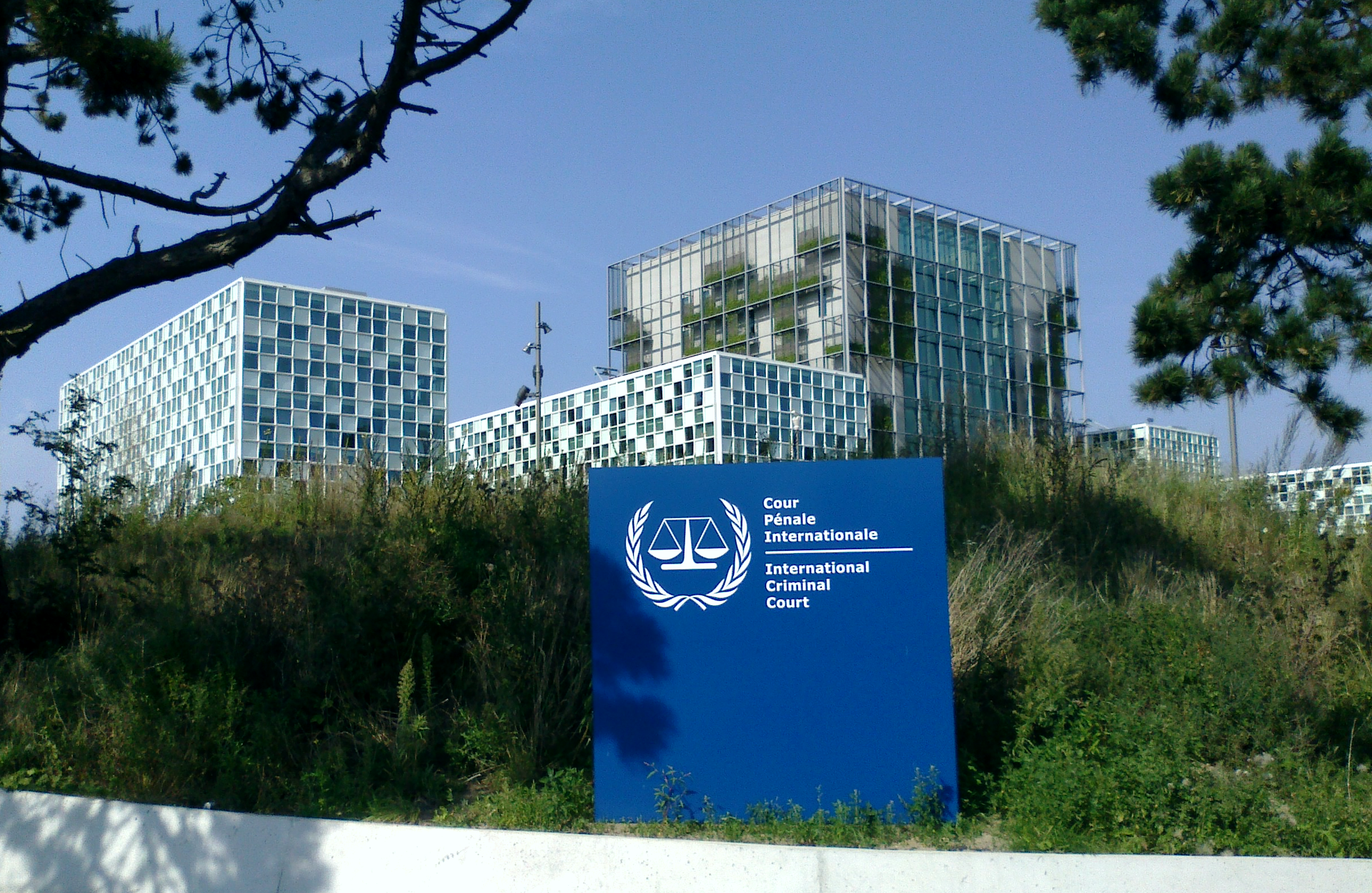
The International Criminal Court (ICC) proceeded with its probe into the killings tied to former president Rodrigo Duterte’s war on drugs and a similar campaign carried out while he was Davao City mayor.
The ICC suspended its investigation in Nov. 2021 to assess the Philippine government’s request to defer the probe. The government claimed then that local authorities were already acting on the deaths linked to the anti-drug campaign.
The Duterte administration had insisted that the ICC has no jurisdiction over the drug war.
Duterte withdrew the Philippines’ membership to the ICC in 2018 after the court had announced a plan to conduct a preliminary examination of his drug crackdown
20. Omicron variant enters the Philippines
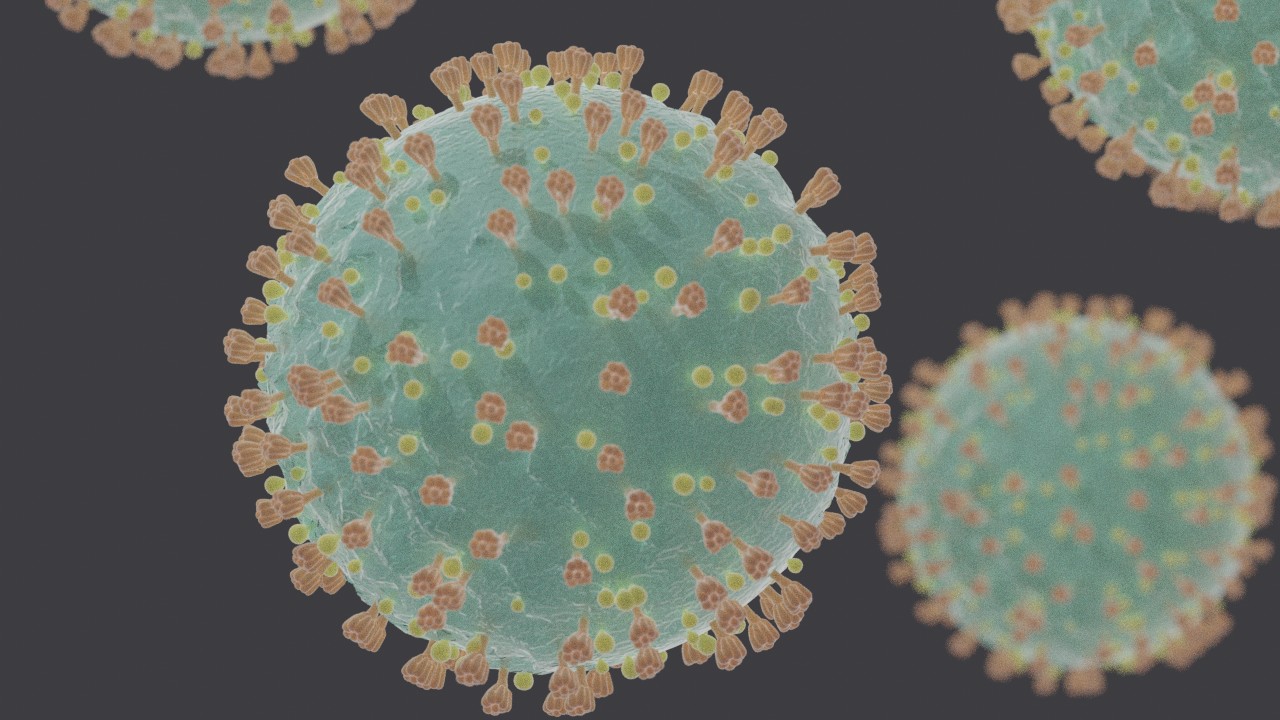
The Philippines’ highest single-day COVID cases in January 2022 was largely caused by the highly transmissible and immunity-evasive Omicron variant and its sub-variants.
The Department of Health announced the country’s first case of Omicron’s sub-variants BA.2.12 in April, Omicron BA.4 in May, Omicron BA.5 in June, Omicron BA.2.75 in August, Omicron XBB and XBC in October, Omicron BQ.1 in November, and Omicron BF.7 and BN.1 in December.
As of Dec. 31, over four million COVID-related infections and 65,385 deaths were recorded in the country.
21. World bids farewell to some history makers

A number of historic figures passed away this year.
Catholics grieved the death of Pope Emeritus Benedict XVI, who died at the age of 95 on New Year’s Eve.
The former pope, whose real name is Joseph Ratzinger, wrote three notable encyclicals on the social teaching of the Catholic Church, namely Deus caritas est (God is love) in 2005, Spe salvi (Saved by hope) in 2007, and Caritas in veritate (Charity in truth) in 2009.
Pope Benedict XVI was the first pontiff to resign from office in 600 years and the first head of the Catholic faith to have a Twitter account. He canonized 45 saints during his papacy, which started in 2005 and ended in 2013.
United Kingdom’s longest-reigning monarch, Queen Elizabeth II, died last Septemeber at the age of 96.
The Queen had governed the United Kingdom for over 70 years, appointing over 15 British prime ministers. Her reign also saw some of the world’s historic developments, including the world’s first commercial jet service under its national flag carrier, the touchdown of astronauts Neil Armstrong and Buzz Aldrin on the moon, the first recorded report of AIDS, the departure of the UK in the European Union, and the COVID-19 pandemic.
American journalist and first female television anchor Barbara Walters died in December at the age of 93. The cause of her death was not disclosed.
The Emmy Award winner broke the glass ceiling for female journalists in the media industry after becoming the face of several television programs. She interviewed some of the most influential people including “King of Pop” Michael Jackson, actresses Audrey Hepburn and Judy Garland, Russia’s President Vladimir Putin, and fellow talk show host Oprah Winfrey.
22. Lucky Me! controversy

A popular noodle snack among Thomasians was placed in hot water last year.
In July, Taiwan and European nations Ireland, Malta and France ordered the recall of some variants of Lucky Me! noodles, specifically those manufactured between 2021 and 2022.
The recall was due to fears that it contained high levels of ethylene oxide, a chemical used in making pesticides.
Monde Nissin Corporation, the manufacturer of Lucky Me! products, assured the public that its products do not contain the chemicals. It noted that ethylene oxide is a commonly used treatment in spices and seeds to control microbial growth.
These materials, when processed into seasoning and sauces, may still show traces of ehtylene oxide, the company added.
The Philippine Food and Drug Administration then assured the public that Lucky Me! products passed the standards for ethylene oxide and are safe to consume, and that those that contain high levels of ethylene oxide were manufactured in Thailand. F – reports from Zoe Airabelle Aguinaldo, Aris Jhon Galang, Matthew Dave Jucom, Shayne Lee Macaraeg, and Prince Ronson Sabado



